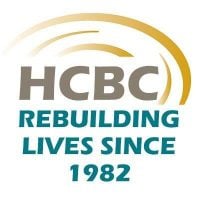Truman Medical Center Behavioral Health
Drug Rehab Center in Lee's Summit, Missouri
Truman Medical Center Behavioral Health is an accredited and certified addiction treatment facility in Lee's Summit, Missouri that offers comprehensive evidence-based recovery programs, including aftercare support, drug rehab, intensive outpatient programs, outpatient treatment, detoxification and inpatient options to help individuals struggling with substance misuse and dual diagnosis on their path to lasting sobriety.
About This Lee's Summit, MO Facility
Truman Medical Center Behavioral Health, a not-for-profit health system located in Lee's Summit, Missouri, specializes in the treatment of mental health, substance abuse, and alcohol addiction. This hospital-based mental health center delivers services through community outreach clinics.
• Comprehensive outpatient, inpatient, and dual-diagnosis treatment facility
• Evidence-based services for addiction, dual diagnosis, mental health, and physical health issues
• Serves people of all ages with aftercare support, drug rehab, intensive outpatient programs, detox, inpatient treatment, residential long-term care, telehealth, and trauma therapy
Truman Medical Center Behavioral Health is accredited by The Joint Commission and the Substance Abuse and Mental Health Services Administration (SAMHSA). The facility assists clients in managing symptoms of their illness and improving life skills to live their lives to the fullest.
TMCBH offers specialized services such as dialectical behavioral therapy, couples therapy, family therapy, nicotine replacement therapy, and electroconvulsive therapy. The center provides 24/7 support, referrals to other healthcare providers, and medical resources in a confidential and safe environment.
Genders
Ages
Modality
Additional
Accreditations
SAMHSA

JCAHO
Conditions and Issues Treated
Rehab centers exist in Lee's Summit, MO to help individuals bounce back from substance abuse, which is an umbrella term for drug and alcohol addiction. Drug addiction refers to the use of illegal drugs and improper use of prescription drugs. Centers like Truman Medical Center Behavioral Health provide individuals a chance to access individual and group therapy that can be monumental for recovery.
Substance abuse includes all problems that stem out from using various psychoactive substances. It is also a diagnostic term used by Diagnostic and Statistical Manual of Mental Disorders (DSM-IV) to define the mental and physical impairment or distress caused by misuse and overuse of certain substances in a period of 12 months.
Opioid addiction involves addiction to legal or illegal opioids. It may happen very quickly with any opioid use. Sometimes within a matter of days. Opioid addiction is a known as a high-risk factor for future heroin addiction.
Opioid withdrawal can be extremely uncomfortable and lead the user to continue to use even if they want to quit. Stopping using an opioid requires careful medical observation. Sometimes the withdrawal can persist for many weeks, which can put the user at a high risk for relapse.
It is recommended to receive inpatient treatment and a medically supervised detox like those offered at Truman Medical Center Behavioral Health in Lee's Summit, MO, MO, to manage the withdrawal process while learning lasting tools to maintain recovery. In some circumstances medications can be used to manage opioid addiction.
People with dual diagnosis have coexisting addiction and a mental disorder. 9.2 million US adults had a co-occurring disorder in 2018, so not just limited to Missouri residents. Best treatment combines medication, psychotherapy (talk therapy), support group, and inpatient rehabilitation. Sometimes, complementary therapies – yoga, massage, and acupuncture – may also be used.
Levels of Care Offered
This center offers a variety of custom treatment tailored to individual recovery. Currently available are Aftercare Support, Detox, Drug Rehab, Dual-Diagnosis, Inpatient, Intensive Outpatient, Outpatient, with additional therapies available as listed below.
Detoxification is a process that allows the patient to stop using opioids without experiencing severe withdrawal symptoms. This can be necessary for those who have been addicted for a long period of time or who are struggling with chronic pain.
During this process, addicts will receive medication and psychological support from doctors and other medical professionals until they can control their cravings.
Inpatient rehab is intended to treat severe addictions and co-occurring disorders. The length of stay in Missouri varies from four weeks to six months according to the individual needs. Inpatient rehab ensures that the patient stays in a substance-free environment at Truman Medical Center Behavioral Health.
Intensive outpatient programs mostly conduct meetings on weekdays. Group therapy is the main element in most intensive outpatient programs. Most IOPs last for about 90 days and include drug use monitoring and testing. A Missouri IOP, like what’s offerd at Truman Medical Center Behavioral Health, take much more time than a standard outpatient program. Some programs offer other services as well, such as employment assistance and medication management.
Outpatient treatment can be considered the lowest intensity level of addiction treatment in Lee's Summit, MO. It is ideal for early phase addiction or lower intensity addictions. Truman Medical Center Behavioral Health peer group support, 12-step programs, and individual counseling may still be involved.
After treatment, addiction treatment can be frightening for newly sober people. Aftercare support provided by Truman Medical Center Behavioral Health is designed to give resources and help on a continued basis. It can involve finding housing in and around Missouri, setting up 12-step meeting groups, continued medical monitoring, and counseling.
Truman Medical Center Behavioral Health‘s Therapies & Programs
Individual therapy aims to identify the core issues that would have led the patient to substance abuse and address the root cause effectively. Patients find the therapist as a person who they can trust. It helps them to open up and discuss personal and sensitive issues, which they may not be comfortable discussing in a group.
Couples therapy is an approach wherein the patients and their partners are engaged together as a part of the treatment process. When a person becomes a victim of substance abuse, it affects the patient and the people around him, particularly his partner. Their relationship can become strained due to lack of communication, financial issues, loss of trust, lack of intimacy, and physical abuse in more severe cases.
Couples therapy addresses these issues and tries to rebuild the trust between the partners. The partner’s involvement in the process will result in greater chances of treatment success and sustained recovery.
Family therapy is a set of therapeutic approaches that assumes that the entire family is a system. It utilizes the strengths and resources of the family to help the patient refrain from resorting to substance abuse. It helps to repair relationships and improve communication between family members.
Group therapy happens at Truman Medical Center Behavioral Health in a controlled group environment, as opposed to a one-on-one setting. It supports Lee's Summit, MO patients’ recovery by offering a sense of comfort and letting them know that they are not alone. Through shared conversations, patients also learn to develop faith and understanding and gain insight on their addictions.
Unresolved trauma is often a key reason why many patients resorted to substance abuse. Trauma therapy refers to treatment wherein specialist therapists help the patients to resolve the trauma that led the patients to substance abuse. The trauma could be physical abuse, sexual abuse, war, natural disasters, divorce, accident, loss of a loved one, etc. Thinking of these traumatic events causes emotional disturbances like anxiety, depression and results in addiction. If trauma is the primary cause of substance abuse, then both issues must be addressed. Otherwise, there is a risk of relapse. Trauma therapy also improves the cognitive functions and provides long term benefits.
Dialectical Behavior Therapy (DBT) is an improved version of Cognitive Behavioral Therapy (CBT). DBT is a treatment of choice for people suffering from self-harming behaviors characterized by cutting and suicidal thoughts or inclinations.
This treatment is developed to help individuals recognize their thought patterns, behaviors, and feelings. It has demonstrated its effectiveness for people that are finding it difficult to control their emotions and urges. Conditions such as obsessive-compulsive disorder and borderline personality disorder also benefit from DBT as it imparts individuals stress-management techniques and enhanced self-esteem so they can sustain their sobriety by reducing the impact of triggers and out-of-control emotions.
Payment Options Accepted
For specific insurance or payment methods please contact us.
Is your insurance accepted?
Ask an expert, call (888) 674-0062
Additional Details
Specifics, location, and helpful extra information.
Lee's Summit, Missouri 64063 Phone Number(816) 404-6170 Meta DetailsUpdated April 15, 2024
Staff Verified
Patient Reviews
There are no reviews yet. Be the first one to write one.
Lee's Summit, Missouri Addiction Information
Opioid-related overdoses in Missouri have been increasing steadily for the past three decades. In 2018, more than 1,130 people in Missouri died from opioid abuse. Methamphetamines and marijuana abuse have surpassed opioid abuse in Missouri. Missouri is the number 1 methamphetamine manufacturer in the country with more than 27 meth labs per 100,000 people.
Over 6% of the population in Lees Summit struggles with addiction to drugs or alcohol. This can have a ripple effect on friends, family members, and co-workers. The most commonly abused drugs in Lees Summit are marijuana, cocaine, and heroin. Treatment may last anywhere from a few weeks to a few months, depending on the severity of the addiction and the person's individual needs.
Treatment in Nearby Cities
- Carthage, MO (120.4 mi.)
- Milan, MO (111.1 mi.)
- O Fallon, MO (198.0 mi.)
- Cape Girardeau, MO (286.7 mi.)
- Camdenton, MO (108.3 mi.)
Centers near Truman Medical Center Behavioral Health
The facility name, logo and brand are the property and registered trademarks of Truman Medical Center Behavioral Health, and are being used for identification and informational purposes only. Use of these names, logos and brands shall not imply endorsement. RehabNow.org is not affiliated with or sponsored by Truman Medical Center Behavioral Health.








